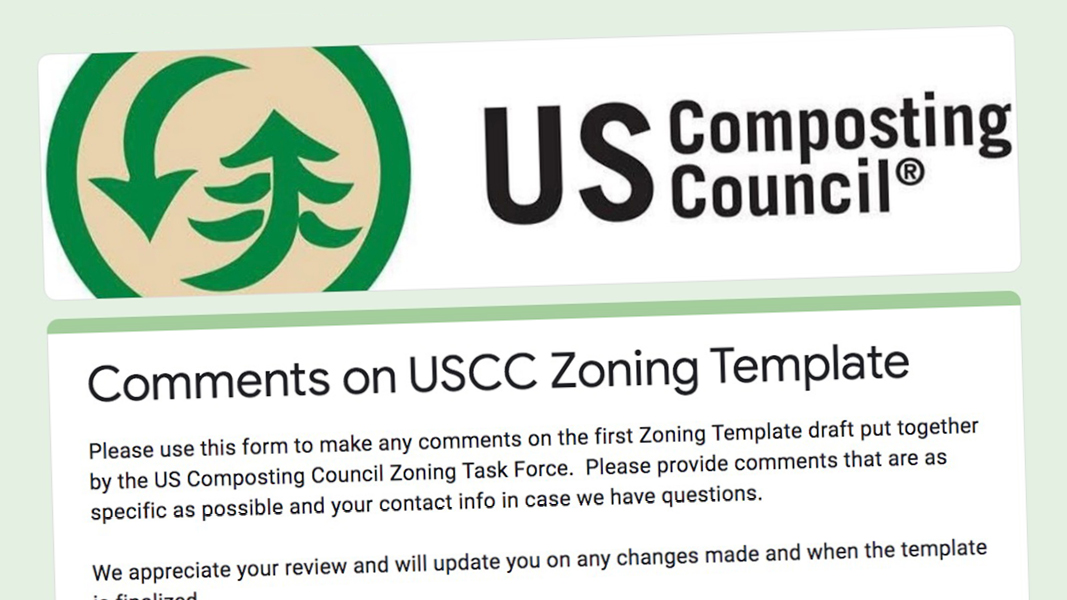The US Composting Council’s (USCC) Legislative & Environmental Affairs Committee’s Model Zoning Task Force released a draft “Model Composting Ordinance” for community, commercial and on-farm composting sites, and is seeking comments from USCC members and industry stakeholders. The Task Force, led by Marcus Zbinden, a regulator from Carver County, Minnesota, has spent the past year focusing on zoning ordinances from around the country. The intent, states the document’s Introduction, “is to provide baseline ordinance language collected from research into existing zoning ordinance and land use classification tables across the U.S. as a ‘best practice’ for zoning ordinances, to help municipalities who do not have ordinances in place to address applications for industrial (also often called commercial) composting, small-scale (also often called ‘community’ or ‘decentralized’) composting, and on-farm composting. The assumption is that each community will apply its own geographic, cultural, political and environmental situation to the template and modify it as needed. To assist with this process, this document includes background discussion to assist with decisions in areas covered by the ordinance.”
Section 2 of the model ordinance covers compost-related definitions and Section 3 delves into Land Use Categories/Permit Types, including zoning classifications, e.g., industrial, residential, agricultural. Sections 4-6 go through the three composting site categories. Small Compost Site, for example, includes location requirements, acceptable materials, size and maintenance. Large Compost Site gets into more detailed general operating standards and specific requirements for site operations. Section 6, On Farm Compost Site, is the most detailed, covering guidelines for review of local laws affecting on-farm composting facilities, design requirements, and storage and processing. Table 1 in the Appendix, “Allowable Composting Uses and Permit Requirements,” overlays standard land use categories and permit types with each category of composting. Deadline for comments is November 25, 2020; a comment form is provided.













